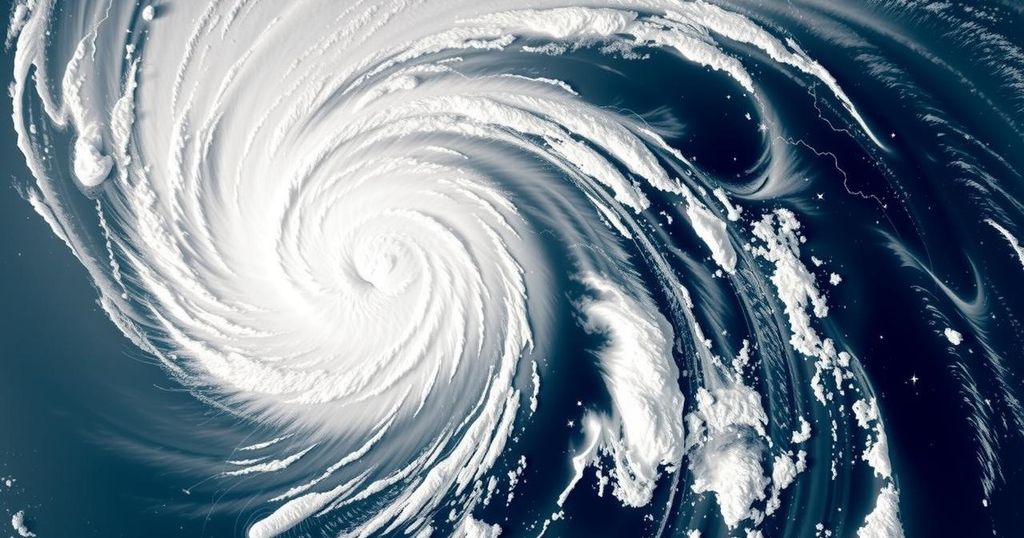Cyclone Chido Devastates Mayotte, Approaching Eastern Africa
Cyclone Chido has caused extensive damage in Mayotte, with winds surpassing 220 km/h. The cyclone has prompted local and federal emergency mobilization, and fears are rising for the safety of missing fishermen in Comoros. Chido is expected to hit Mozambique next, threatening millions. The increase in cyclone severity due to climate change poses significant challenges for southern Africa, which has faced numerous humanitarian crises from past cyclones.
Cyclone Chido has severely impacted Mayotte, a French territory in the Indian Ocean, as it advances toward eastern Africa. With winds exceeding 220 kilometers per hour, the cyclone has caused significant destruction, including the loss of metal roofs from numerous homes. Fortunately, there have been no immediate reports of casualties. Mayotte Prefect François-Xavier Bieuville remarked that, “Our island is being hit by the most violent and destructive cyclone since 1934. Many of us have lost everything.” The cyclone’s aftermath necessitated lifting the highest alert to enable rescue operations, although a red alert for the general populace remains in effect, urging residents to stay sheltered.
The situation in Mayotte has prompted extensive mobilization of local and federal emergency services, with Interior Minister Bruno Retailleau stating, “The damages already appear to be extensive.” Thousands of residences are reportedly without power, and essential infrastructure has been damaged. To aid in recovery efforts, 110 rescuers and firefighters from France and Reunion were promptly dispatched, with further reinforcements expected. The cyclone has also affected neighboring Comoros, where officials are concerned for 11 fishermen missing since Monday. Authorities there have implemented measures such as port closures and school shutdowns to prepare for the cyclone.
Forecasters predict that Chido will continue its path toward Mozambique, threatening approximately 2.5 million individuals in vulnerable northern provinces. Nearby countries, including Malawi and Zimbabwe, are also bracing for the storm’s impact, with Malawi anticipating flooding and recommending higher ground relocation for affected residents. Each year from December to March marks cyclone season in this region, which has seen a notable increase in the severity of such storms, attributed by studies to climate change. Past cyclones, like Idai and Freddy, have left thousands dead and posed significant public health risks, including waterborne diseases.
The recurrent nature of these devastating cyclones highlights the urgent need for comprehensive strategies to mitigate humanitarian crises in southern Africa, a region that contributes minimally to global climate change yet bears the brunt of its consequences.
Cyclones are common in the southeastern Indian Ocean during the December to March cyclone season. Over recent years, southern Africa has increasingly experienced severe cyclones, exacerbating humanitarian crises in countries like Mozambique, Malawi, and Zimbabwe, which have historically contributed little to climate change. The escalation in cyclone intensity and frequency has been correlated with climate change, raising concerns about future impacts, including flooding and waterborne diseases, which are often exacerbated after such natural disasters. This context underscores the need for adequate preparedness and response measures in affected regions.
In conclusion, Cyclone Chido has markedly affected Mayotte, resulting in significant structural damage and prompting extensive emergency responses. The situation underscores the recurring challenges posed by increased cyclone intensity associated with climate change in southern Africa. As neighboring countries prepare for potential impacts, it is critical to recognize the necessity of robust support systems to mitigate future humanitarian disasters in these regions.
Original Source: www.voanews.com




Post Comment